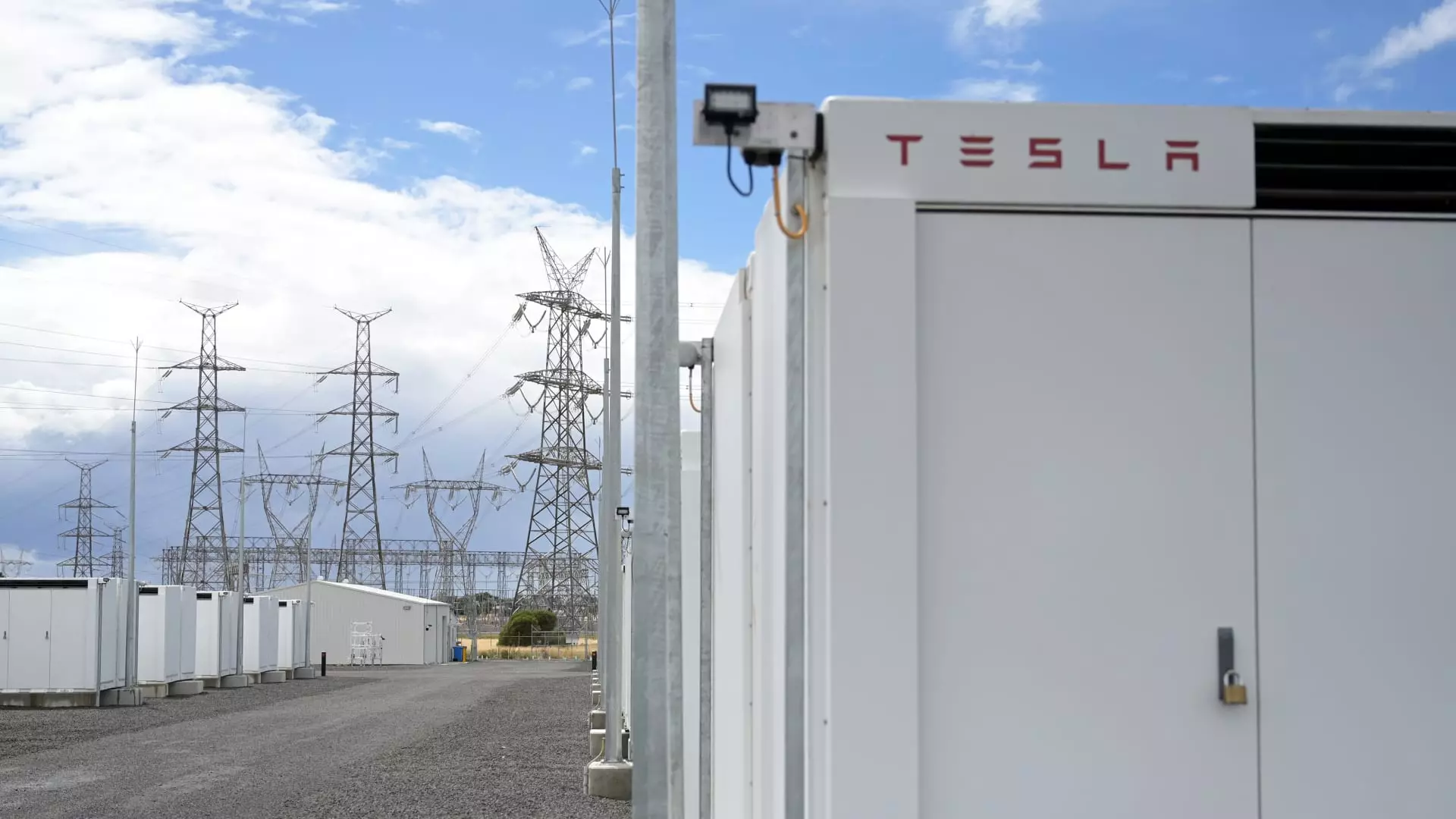In a landscape defined by geopolitical tensions, Tesla has taken a giant leap by signing a groundbreaking deal to construct a grid-scale battery power plant in China. This move comes amidst a backdrop of mounting trade barriers between the United States and China, raising questions about whether this partnership is a significant stride or a risky miscalculation. The $556 million venture, confirmed via Tesla’s announcement on Weibo, has put the company on track to develop what is projected to be the largest facility of its kind in the country. While this deal could revolutionize energy storage in a nation striving for clean energy, it also emphasizes the delicate balancing act of navigating international relations in an age where tariffs and trade wars loom large.
Transforming Energy Storage: The Role of Megapacks
Tesla’s ambitious grid-scale battery plant aims to incorporate its Megapack technology, designed to store vast amounts of energy generated by intermittent renewable sources like solar and wind. Each Megapack has the potential to provide up to 1 megawatt of power for four hours, acting as a critical buffer for urban electricity grids. As cities become more reliant on variable energy sources, the need for reliable battery storage solutions grows exponentially. The allure of Megapacks is not just their technological innovation but also their significant role in curbing urban power shortages, a pressing issue for China’s megacities wrestling with power demands.
In a country where energy consumption is surging, Beijing’s plans to expand battery capabilities to a staggering 40 gigawatts by 2025 illustrate the urgency and significance of Tesla’s initiative. However, one must wonder if this deal can break through the formidable front of local competitors like CATL and BYD, who dominate the market with their own advanced battery technologies. While Tesla has carved a niche in the electric vehicle (EV) space, its foray into large-scale energy storage systems puts it in direct competition within China’s burgeoning battery landscape.
Competing in a Complex Market
Despite its prowess, Tesla’s entrance into this competitive arena raises concerns about its sustainability in a uniquely complicated market. China’s battery production is not just a matter of economics but also one of national priority. Local giants CATL and BYD not only command significant market shares but also benefit from government support and an established supply chain. With CATL holding a formidable 40% of global market share, Tesla may find itself at a disadvantage despite its technological innovations.
Furthermore, the geopolitical ramifications of this deal cannot be ignored. As Tesla navigates trade tariffs introduced during the Trump administration, the path forward for U.S. automakers becomes intertwined with the shifting political dynamics. Tesla’s historic ties with political figures might complicate perceptions of their business motives in China. The company’s attempts to remain favorable in a strained relationship raises questions about ethical entrepreneurship in a globalized economy. Can Tesla reconcile international business acumen with the realities of a polarized political climate?
The Energy Storage Revolution: A Necessity for the Future
Nevertheless, the significance of Tesla’s project is underscored by the surging global demand for battery energy storage solutions. The International Energy Agency reported a staggering increase in global battery capacity in 2023, reinforcing the view that energy storage will be vital as nations aim for greener, more resilient energy systems. China’s lust for rapid energy advancement creates fertile ground for Tesla’s high-tech innovations. Yet, the company’s success will hinge on its ability to adapt to local industry standards and consumer expectations.
Tesla’s decision to advance battery exports from its Shanghai facility demonstrates not only an adaptation strategy to mitigate potential trade fallout but also an acknowledgment of the core demand for sustainable energy solutions that span beyond borders. The company stands to capitalize on the growing expectation of energy transition, but will it be able to assert itself as a leader while facing domestic resistance?
As Tesla steps into this daring venture, it has the potential to shape the future of energy storage in China and beyond. However, the intertwined fates of economic ambition, local competition, and global politics create a complex web in which Tesla will need to skillfully navigate to emerge victorious. In a world increasingly reliant on sustainable practices, the outcome of this project could be monumental, but the risks are undeniably high.


Leave a Reply